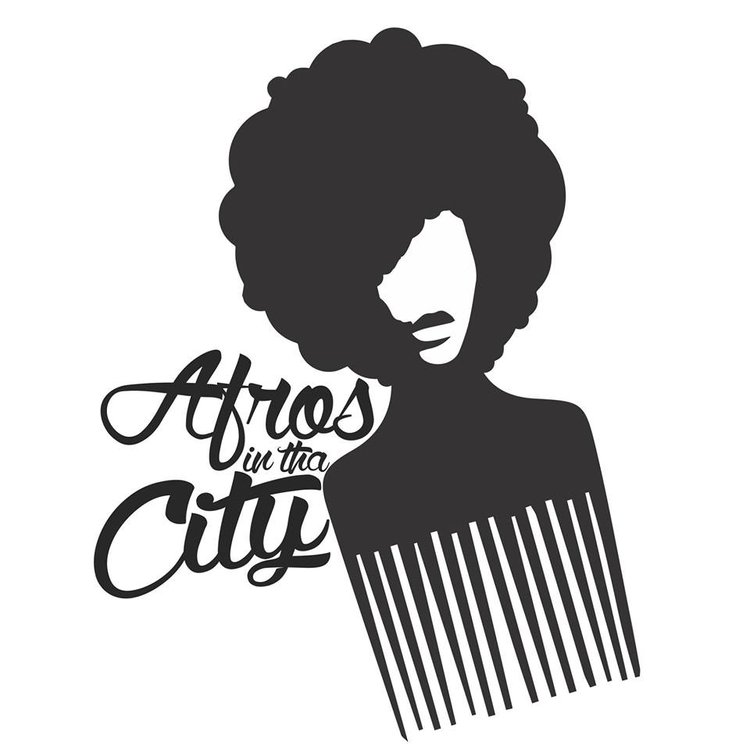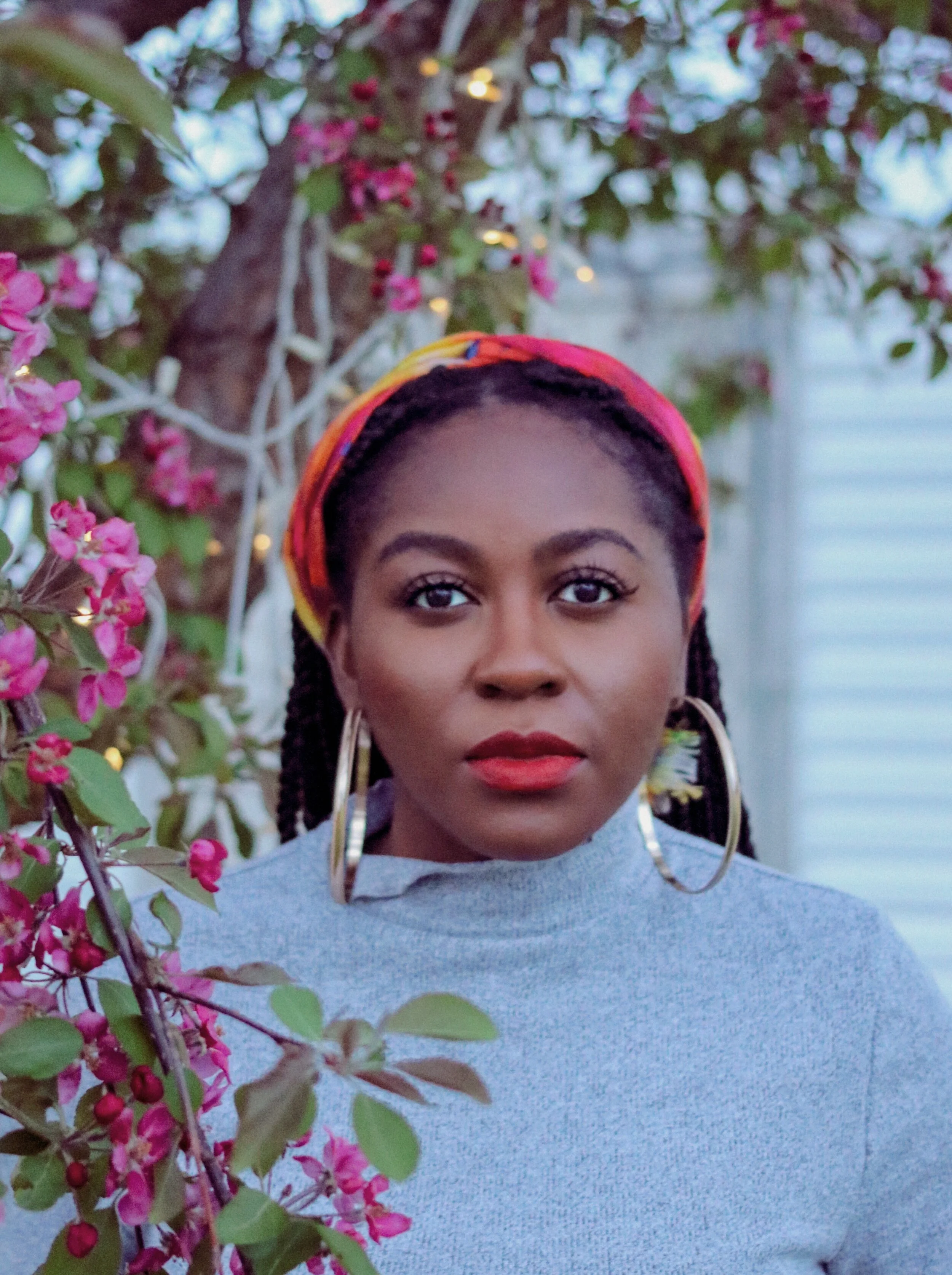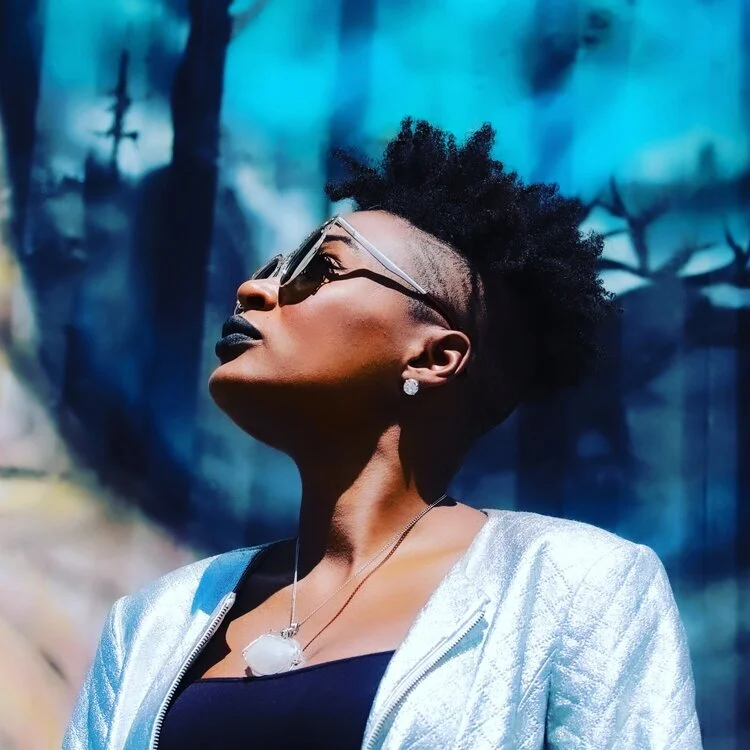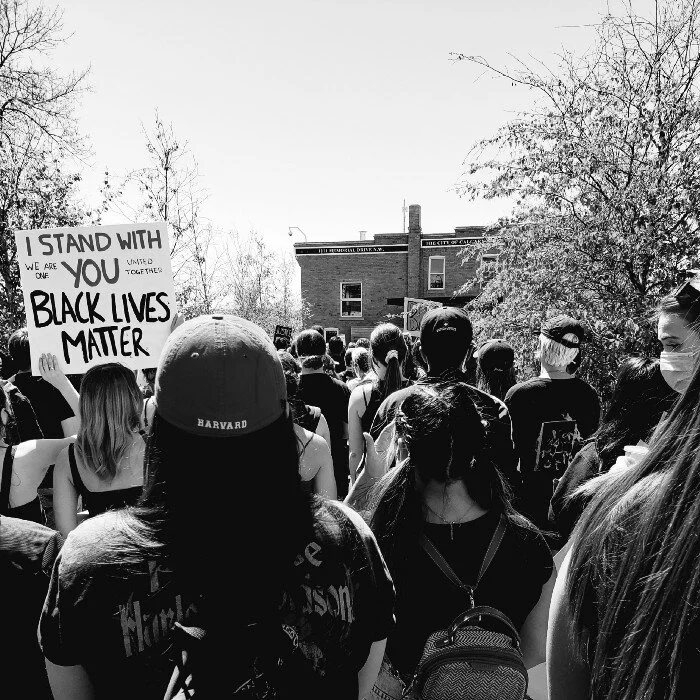Some double standards in music include the fact that white people have historically been free to claim any genre they set their sights on, while Black people are relegated to R&B, hip hop and ‘urban’ genres. The following artists: Demi Lovato bouncing from Emo-Nite to R&B influenced album Tell Me You Love Me; Miley Cyrus going from Disney princess to Bangerz (an album I actually love), and “rapping” on 23; and Machine Gun Kelly going from rapper to pop-punk saviour, are all examples of said freedom.
Read MoreDespite the violent racism experienced last year, Pink Flamingo has several new projects to unveil this year, including the relaunch of the Black Lives Matter mural project
Read MoreThe conversation surrounding Black music as well as appropriation has been a ripe one in pop culture discussions for a handful of years, as open dialogue around white supremacy has become more commonplace. Hip hop and R&B are usually the first genres to be brought up in these discussions. But what is it about these genres that creates such a powerful cultural connector that people all over the world, from all backgrounds and of all races have grasped onto?
Read MoreOn the Permissibility of Homophobia Within Dancehall from the Perspective of One Diasporic Dyke.
Read MoreCapitalism and its concomitant red tape restricts those who desire self-determination, while racism compounds these issues.
Read MoreThe inaugural Calgary Black Film Festival will run online from May 26th to the 30th. Afros In Tha City will be co-presenting The Search For Healing by Tyler Simmonds as well as a panel discussion on Diversity On & Off Screen.
Read MoreWhile Orest’s family was successful, they encountered many hardships, this is due to the Rwandan genocide that happened from 1993 to 1994. His family fled Rwanda and moved to Congo for a better life. They were forced to sell their property, their homes and everything that they owned. They lived in Congo for about two years before the Congolese government started kicking people out. This led the Ndabaneze family back to Burundi, where Orest was born.
Read MoreEve is the founder of Capability Career Group, a Calgary-based organization specializing in diversity, inclusion and belonging, academic advising, career development and employment skills workshops.
Eve started in this industry by working for employment agencies in Calgary and seeing first-hand just how rigged the system is.
Read MoreMisha was born in Swaziland and raised in South Africa, Australia and Canada. She credits the African continent’s rich culture of music and singing as well as the church, for her early appreciation of music.
Read MoreOn the bright side of stress-pessimism, depressive rage is probably the most appropriate mood for listening to black and death metal, which is, once again, what we are doing here.
Read MoreYou are putting the burden of education unto a student disguised as an “opportunity to share.” You are putting a student on the spot in an environment that has most likely not been optimized for their safety.
Read MoreIn honour of the month where we celebrate Black excellence and love, I want to extend that celebration to Black women revelling in self preservation and self care. Chatting with Calgary It Girl, Femi Akinsanya, I sought to understand: how can a Black girl practice self-care on Valentine’s Day and beyond.
Read MoreArtiste, Chanteuse and Soul Queen, Yolanda Sargeant delivers a powerful submission on identity for Black Future Month
Read MoreIn John Ware Reclaimed, Cheryl Foggo re-examines the story of John Ware, the Black cowboy who settled in Alberta in the 19th century.
Read MoreI want to be satisfied with the idea of “care” simply being kind in one’s daily interactions, however caring might mean saying uncomfortable truths, without waiting for the comfort of the cultural climate…
Read MorePhoto by Pink Blush Photography
Onyx refers to herself as The Stripper Queen of Canada. She is an exotic dancer who has been working across Canada for over 15 years. Among a long list of titles, Onyx is a two-time winner of Miss Nude Canada and also holds the title of Miss Burlesque North America. Yet despite being one of the best in the industry, Onyx has to fight for what most of us see as basic human rights.
Read MoreThis is what we know: research has a questionable past and present. Ethics weren’t always a thing apparently, and they’re very mutable. What’s ethical for a scientist trying to cure a deadly disease may be cruel to a vegan wanting to see no creature harmed; what was seen as an ethical approach to interviewing fifty years ago may be seen as exploitative today.
Read MoreAmong the million other things that make me stick out like a sore thumb in Nevis besides being the palest pickney to ever come from a Black woman, as well as having bizarre hair and social difficulties, a metal band shirt also does the trick.
Read MoreWe need data to be able to closely examine the socio-economic conditions that leave racialized communities more vulnerable. We need it to better understand what systemic racism looks like in our province, and to inform anti-oppressive policy. But we also need it to arm advocates and storytellers, because without data, people just aren’t believed.
Read MoreIs there really such a thing as altruism? Even if you’re not expecting anything tangible in return, what about the non-tangibles? The recognition, social status (as an activist), being able to look at yourself in the mirror and like who you see (personal integrity), public perception?
Read More



















